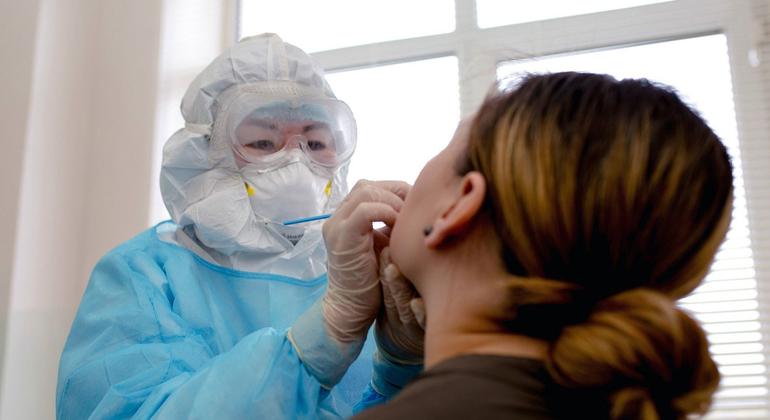The World Health Organization (WHO) has issued a warning about the ongoing threat of COVID-19 and the potential emergence of more severe variants of the virus. Dr. Maria Van Kerkhove, a leading expert at WHO, emphasized that the pandemic is far from over and is still a major concern for all countries around the world.
Speaking at a press conference in Geneva, Dr. Van Kerkhove highlighted the concerning trend of rising positivity rates for SARS-CoV-2, the virus that causes COVID-19. Data from surveillance systems in 84 countries showed that the percentage of positive tests has been increasing over the past few weeks. Overall, the test positivity rate is above 10%, with some regions, particularly in Europe, reporting rates above 20%.
The resurgence of new infections has been observed in regions such as the Americas, Europe, and the western Pacific. Wastewater surveillance has also indicated that the actual circulation of the virus may be significantly higher than reported cases suggest. This high level of transmission during the summer months is unusual for respiratory viruses, which typically thrive in colder temperatures.
Dr. Van Kerkhove pointed out that even in non-traditional seasons, many countries have experienced surges of COVID-19, including cases among athletes at the Olympics. The evolving nature of the virus poses a significant risk of more severe strains emerging that could be resistant to existing detection methods and medical interventions.
While hospital admissions related to COVID-19 are currently lower than they were at the peak of the pandemic, WHO is urging governments to ramp up vaccination campaigns. The organization recommends that high-risk groups receive vaccine doses at least once every 12 months to protect against severe disease.
Dr. Van Kerkhove emphasized the importance of individuals taking steps to reduce their risk of infection, including staying up to date with COVID-19 vaccinations. However, she acknowledged the challenges faced by vaccine producers in maintaining supply levels due to decreased production capacity.
The development of nasal vaccines could offer a promising solution to address transmission and potentially reduce the risk of new variants emerging. Dr. Van Kerkhove expressed her concerns about the vulnerability of at-risk populations to more severe variants if vaccination coverage remains low and the virus continues to circulate widely.
The WHO specialist stressed the need for continued vigilance and proactive measures to combat the ongoing threat of COVID-19. With the potential for more severe variants to emerge, it is crucial for governments, healthcare systems, and individuals to prioritize vaccination efforts and adhere to public health guidelines to prevent further spread of the virus.
In conclusion, the WHO’s warning about the persistence of COVID-19 and the potential for more severe variants underscores the importance of ongoing efforts to control the pandemic. By staying informed, following public health recommendations, and getting vaccinated, individuals can contribute to reducing the impact of the virus and protecting vulnerable populations from the threat of severe disease.









